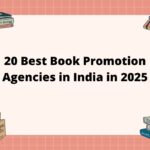Did You ‘Research’ Before Writing the Story?
Author : Piya Gajbe | Sharing Stories
Research- A Writing Tool
Did You ‘Research’ Before Writing the Story?
“Research is not an obstacle, something to be frightened of. It can be one of the real joys of writing.” – Anthony Marra
What are the things necessary for writing a good piece of fiction?
Of course, good plots, vivid imagination, command over the language and excellent execution of the plot. However, another ingredient for a perfect story is a detailed research of the subject of your story.
Why is research important in story writing?
Whenever you are writing a story, you want the reader to travel along with you in the story. It becomes necessary that the world crafted by you should appear real and authentic. A great amount of in-depth research goes into creating a piece of writing which blurs the line of imagination and deeply involves the reader in the happenings of the story.
For example, if you are writing a story revolving around the life of a Second World War soldier, you have to create the particular era in detail. For this, you have to be equipped with the knowledge of the period, the way of life during the era, the social impact of the war etc. You have to show the finer details by mentioning the way your character dresses, the kind of food available and the way he or she speaks. This basically imbibes the ‘Show, don’t tell’ rule of writing. You will either have to read a lot of history and literature written around the particular time or you can follow some documentaries too.
Good research provides a strong skeletal to your story. A fine vocabulary and proper execution of the plot can take the story to another level, leaving the reader in a complete awe.
Research Tools For A Writer:
There are different ways through which you can research the topic you are writing about.
Observation:
“When writing a novel, a writer should create living people; people, not characters. A character is a caricature.” – Ernest Hemingway.
The first and foremost tool, or rather I shall call it a skill, is observation. A writer should deeply observe things. He should possess a third eye about the things around him. Skilful observation of people, their body language, and behaviour can help the writer to put them on paper as living people.
Interactive Tool:
For some writers, interaction with the people related to the topic or place of the story seems easier than reading a lot of stuff. Talking to people can give you insights and local perception. It can make your story quite relatable too, as it comes from real people.
Reading:
Reading is the most common way of research for the writers. They will spend hours, with their heads buried inside the books related to the topic they have chosen. Highlighting, adding bookmarks and flags to the important sections of the books which they can later refer to. Many a time, writers mention these books in the references section of a book. This gives authenticity to the work.
Documentaries:
You can learn a lot through documentaries. Visuals can have a greater impact on your imagination as a writer. A documentary makes it easy for you to understand the topic and because of the visual impact; a larger amount of information is retained in your brain. With the spread of the internet, it has become quite easy to access documentaries through various broadcasting channels, YouTube being the most prominent amongst them.
Internet:
We are the most fortunate generations of the writers. We have the accesses to all kind of information at the tip of our fingers. With one click we can get all the data and info regarding varied topics. I remember, once while writing a story as short as 100words, I required knowing about the various parts of umbrella and Google came to my rescue. You can find weirdest of topics in a writer’s search history. Google is now one of the most and widely used research tools.
What works best for you?
There are no set rules for research. It is all about the kind and amount of information you require. Sometimes only the observation method might suffice and for some stories, you might require to exhaust all the available resources. But what really matters is the research you are doing should come from authentic and genuine material. Else, it can hamper the quality and authenticity of your story.
And last but not least – You can’t be lazy about it. Procrastination is the deadliest enemy of a writer. Don’t assume research as a task. It not only hones your skills but increases your knowledge too. A well-researched story stays in the mind of a reader for a much longer time.
So grab your tools, and pen down something exciting and unique and keep learning in the process!
Discover marketing services, interviews & publishing tools at SharingStories.





